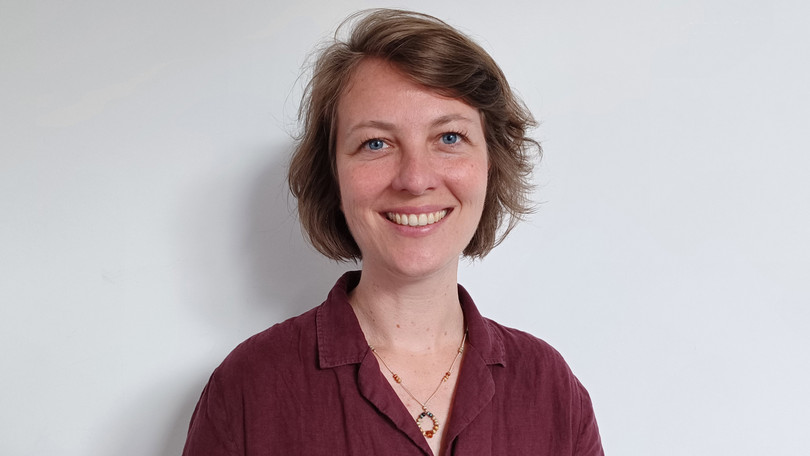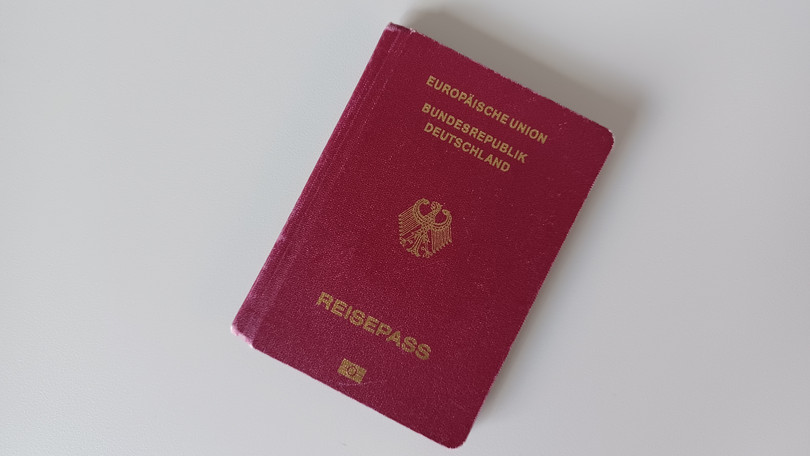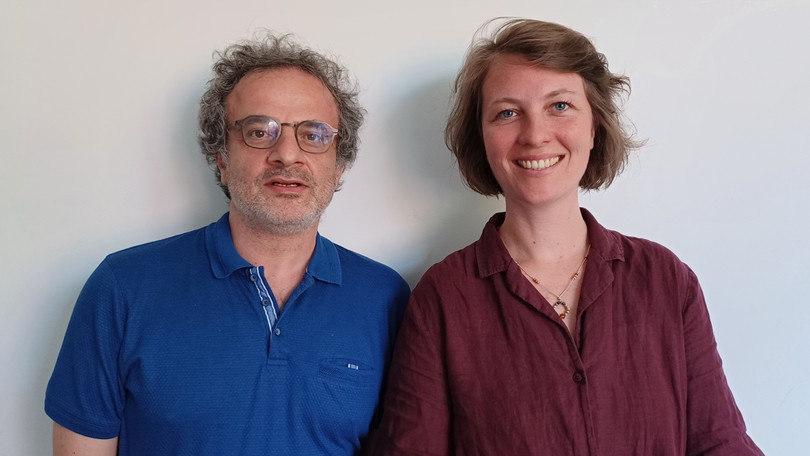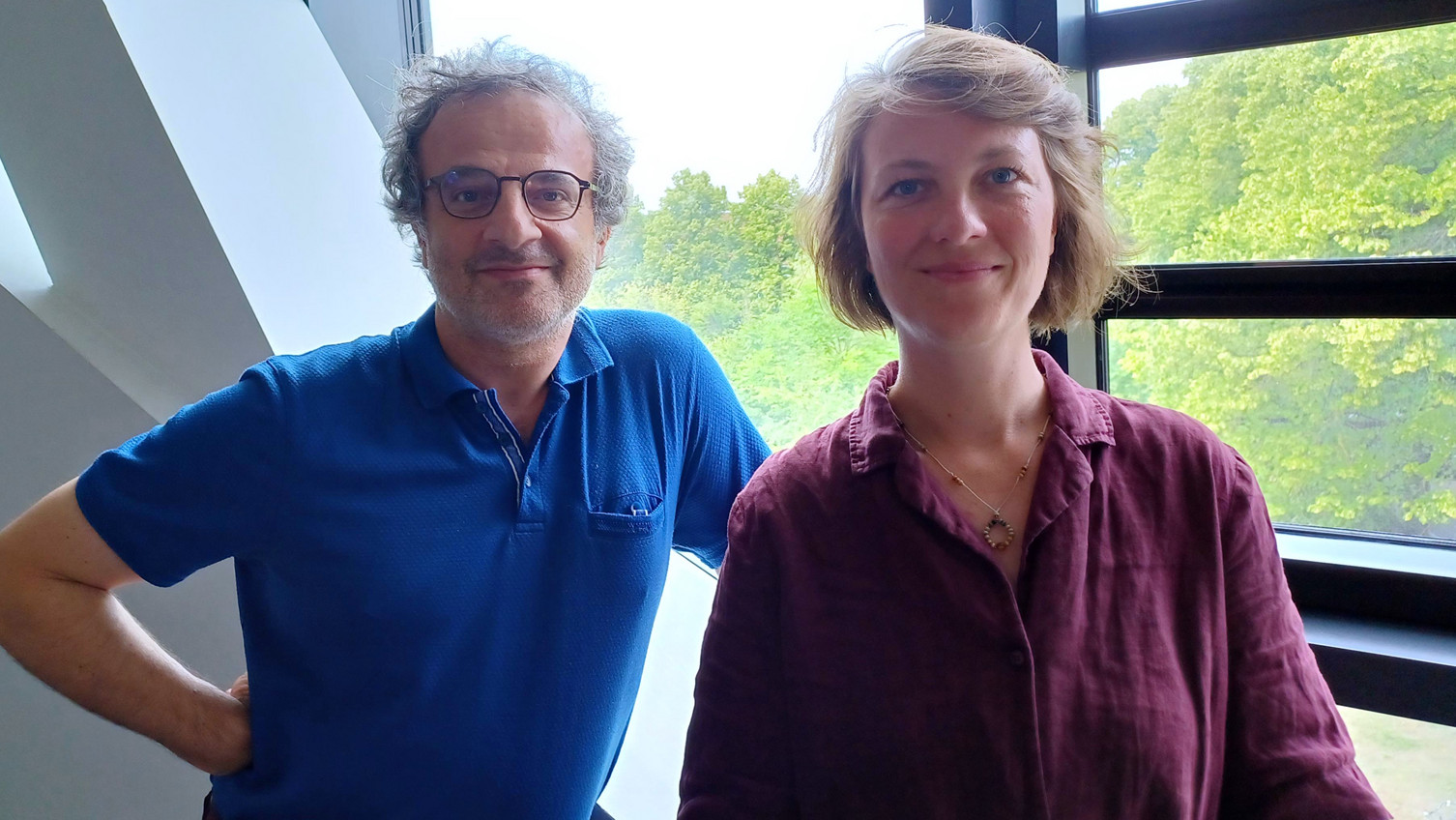What kinds of conflict arise in post-migrant societies when addressing gender-based violence?
This is the question Dr. Miriam Gutekunst is exploring during her time at Leuphana University. As part of the visiting scholars program on intersectional gender research, she engages in intensive exchange – both theoretical and methodological – with colleagues at the Institute of Sociology and Cultural Organization (ISKO).
Their visual harmony already suggests mutual understanding: without planning it, Dr. Miriam Gutekunst and Prof. Dr. Serhat Karakayali arrived at their meeting wearing coordinated colors – pants and tops alternating between shades of blue and burgundy. This visual symmetry reflects their collaborative scientific engagement. Both are scholars of migration, yet they approach the topic from distinct disciplinary backgrounds, allowing them to complement one another’s perspectives. She is a cultural anthropologist; he is a sociologist. Dr. Karakayali is Professor of Migration and Mobility Studies at ISKO.
As a symbol of her work, Miriam Gutekunst holds something in her hand that some people use freely, while others cannot: her passport. To her, it represents the places where she has conducted fieldwork – Morocco, for instance – but it also stands for what she calls a ‘mobility hierarchy’. “The global inequality in access to mobility rights has been a recurring theme in my research,” says Miriam Gutekunst. “As a cultural anthropologist, I am particularly interested in how migration and border policies are negotiated, implemented, and experienced in everyday life, within institutions, and in bureaucratic settings.”
This question formed the basis of her most recent research project, in which she examined the contentious implementation of EU migration policy using the example of ‘family reunification’. She is now turning her attention to the ways in which political categories and hierarchies of migration continue to shape life in post-migrant societies – for example, through citizenship status, gender, sexuality, and religion. Her current work at Leuphana is also situated within this thematic field. “I am particularly interested in how gender-based violence is dealt with in post-migrant societies,” she explains. “What we’ve seen in recent years is a tendency to publicly address gender-based violence primarily when the perpetrators are perceived as migrants.” This, she argues, reinforces the idea that gender-based violence is a migration issue rather than a structural problem within society as a whole.
“With my research, I want not only to identify strategies to counter such instrumentalization, but also to explore how to handle the dilemmas that emerge in practical contexts – for example, within feminist organizations,” Miriam Gutekunst says of her motivation to pursue this line of inquiry.
She approaches these questions through ethnography – a research method that observes and describes how people think and act within their social contexts. Ethnography seeks to generate deeper understanding of everyday structures and practices from the perspective of those involved, and by doing so, to illuminate broader social relations and dynamics. While classical ethnology used ethnography (from the Greek for “people description”) to study societies outside Europe, European Ethnology – Dr. Gutekunst’s field – traditionally turns the lens onto one’s own society.
This particular approach was also one of the reasons why Miriam Gutekunst was selected for the highly competitive visiting scholars program, explains Serhat Karakayali: “With Miriam, we have someone who brings deep expertise in ethnographic fieldwork and is attuned to the challenges that arise in research practice,” says the Professor of Migration and Mobility Studies at ISKO. Her experience is particularly valuable for ISKO colleagues because Miriam Gutekunst’s research is self-reflexive – it questions how knowledge is produced and from whose perspective. “As researchers, we must always ask ourselves how our academic concepts and categories contribute to the construction of the very field we are studying – a field that is deeply politicized and emotionally charged,” Serhat Karakayali notes. It is in this sense, too, that individual stories are often embedded within global power structures.
Dr. Miriam Gutekunst was invited to Leuphana by Dr. Stefan Scheel, Professor of Political Sociology at ISKO, with whom she has collaborated for several years. “We’ve already published together – on how various visa procedures are implemented in practice at consulates and embassies in third countries,” she explains. “And now it’s wonderful to reconnect and collaborate here in Lüneburg.” She is currently a postdoctoral researcher at the Institute for Empirical Cultural Studies and European Ethnology at Ludwig Maximilian University of Munich. She previously conducted research in Göttingen, Leipzig, and Innsbruck. During a research stay at Oxford in 2016, she met Serhat Karakayali – a scholarly connection that has now been rekindled and deepened through the visiting scholars program. The two are planning additional joint projects and publications.
Her integration into ISKO extends beyond her own teaching to include active engagement with other scholars. One of them is Dr. Julia Böcker, with whom Miriam Gutekunst is co-organizing a workshop titled ‘Where Do We Stand? Feminist Research in Authoritarian Times’, to be held on September 11, 2025. She considers the interdisciplinary nature of work at Leuphana to be particularly enriching: “I can easily imagine that further opportunities will emerge from this visiting professorship,” says Miriam Gutekunst. Serhat Karakayali adds: “There’s currently no professorship in gender studies at Leuphana. Through working with Miriam – and not just her – it has become clear that we urgently need one.”





